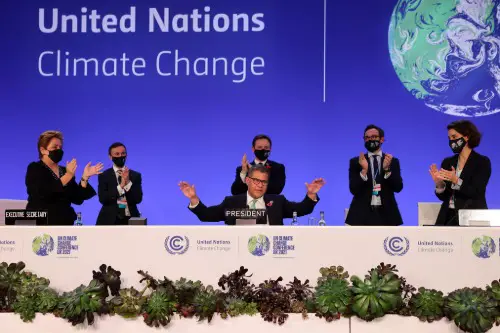1. The Metric System

Americans still debate whether to fully switch to the metric system, even though almost every other country has done so decades ago. Temperatures, distances, and weights are measured differently, which often confuses travelers and international businesses. The U.S. officially recognizes the metric system, but it’s mostly optional, leaving many people clinging to miles, pounds, and Fahrenheit. This stubbornness often makes everyday things like cooking or building more complicated for Americans working with international standards.
Meanwhile, the rest of the world embraced the simplicity of liters, kilograms, and Celsius long ago. It standardizes trade, education, and science globally. Countries that use the metric system rarely think twice about conversions, which keeps daily life simpler. Americans often end up juggling two systems at once, creating unnecessary headaches.
2. Healthcare as a Right

Healthcare in the U.S. remains a heated debate, whereas most developed nations provide some form of universal healthcare. Citizens of countries like Canada, Germany, and Japan generally don’t question whether they can see a doctor when they need to. In America, discussions around access, insurance, and cost continue to dominate politics. Many people argue over whether a system guaranteeing care is worth the tax investment.
Globally, the conversation has largely shifted to efficiency, quality, and innovation in healthcare rather than debating access. Universal systems have shown positive outcomes in life expectancy and infant mortality rates. Citizens are less worried about bankruptcy from medical bills. Americans are still split on whether “universal healthcare” is freedom or a handout.
3. Paid Parental Leave

Most countries have long accepted that new parents deserve paid leave, but in the U.S., this is still controversial. Some employers voluntarily offer it, but there is no federal mandate for paid maternity or paternity leave. Critics often argue that businesses can’t afford it, ignoring evidence that parental leave boosts employee retention and child health. The U.S. is one of the few industrialized nations without a standard paid leave policy.
Elsewhere, parents routinely get months of paid leave without a fight. Policies often include fathers, too, promoting shared childcare responsibilities. Countries like Sweden treat it as a standard benefit, not a privilege. Americans continue debating whether parental leave should be a societal responsibility or purely a personal choice.
4. Universal Pre-K

Early childhood education is taken for granted in many countries, but Americans still argue over funding preschool programs. Evidence shows that quality pre-K leads to better academic performance and social skills. Some states have started public pre-K initiatives, but coverage is inconsistent. Opponents argue it’s “too expensive” without realizing it’s an investment in future productivity.
Internationally, free or subsidized early education is the norm. Children get equal opportunities regardless of family income. Countries have long acknowledged that early learning benefits society as a whole. Americans, by contrast, debate whether education should start before kindergarten.
5. Vacation Time

Americans often pride themselves on hard work, but they still argue over how much vacation time is “enough.” Many people receive two weeks or less of paid vacation, far below the international average. Europeans enjoy three to six weeks annually, and many countries mandate paid public holidays. Critics in the U.S. sometimes claim unlimited vacation policies hurt productivity, even though evidence suggests the opposite.
Abroad, time off is seen as essential to health and family life. Workers can take months-long breaks without stigma. The culture supports work-life balance, not constant hustle. Americans often debate whether vacations are a luxury or a right.
6. Gun Control

While the rest of the world generally favors strict firearm regulations, gun rights remain a core American debate. Countries with high gun ownership, like Japan or the UK, have strict licensing and rarely experience mass shootings. In the U.S., the Second Amendment dominates conversations, making regulation a politically charged issue. People argue over background checks, magazine limits, and assault weapon bans endlessly.
Internationally, reducing gun violence is a straightforward public policy issue. Effective laws correlate with lower homicide and suicide rates. Citizens largely accept these regulations as necessary for safety. Americans are still divided over whether access to firearms is a right or a threat.
7. Climate Change Action

Many countries accept climate change science and act decisively, but in the U.S., it’s still debated politically. Policies on renewable energy, carbon taxes, and emissions reductions face fierce opposition. Americans argue over the economic costs of climate policies rather than the reality of rising temperatures. While scientific consensus is clear, the issue remains polarized in public discourse.
Elsewhere, governments implement aggressive climate strategies without daily political drama. Solar, wind, and efficiency standards are taken seriously. Citizens expect governments to act on science. In the U.S., the conversation often centers on ideology rather than evidence.
8. Universal Internet Access

High-speed internet is considered a basic utility in most developed nations, but Americans still argue over access and affordability. Rural areas often struggle with broadband, and debates over net neutrality persist. Some claim the government shouldn’t intervene, leaving communities disconnected. Meanwhile, other countries treat internet access like electricity or water—a necessity for modern life.
Global benchmarks show near-universal access to schools, hospitals, and homes. Governments incentivize competition to keep prices low. Students and workers can participate fully in the digital economy. Americans continue negotiating whether high-speed internet should be a right or a privilege.
9. Paid Sick Leave

In many countries, employees automatically get paid sick leave, but in the U.S., this is still controversial. Millions of Americans must choose between staying home sick or losing income. Countries like Germany or France provide weeks of paid sick leave without debate. The U.S. culture often glorifies “toughing it out” while sick, affecting public health.
Paid leave abroad is considered essential to prevent workplace outbreaks. Employers plan for absences without stress. Public health policies support both workers and society. Americans continue debating the economic and social value of paid sick days.
10. Public Transportation

Mass transit is standard in most countries, but in the U.S., it’s still a hot topic. Cities like New York and San Francisco have transit, but much of the country relies on cars. Debates focus on funding, efficiency, and whether Americans will actually use trains or buses. Many cities are still decades behind global transit standards.
Abroad, clean, frequent, and affordable transit is expected. People can commute without a car, reducing traffic and pollution. Transit planning is central to urban development. Americans argue over whether public transportation is a necessity or an optional convenience.
11. Drinking Age

The U.S. has a higher legal drinking age than most countries, but some still argue it should be stricter or more lenient. Globally, 18 is standard, and many nations focus on education rather than prohibition. Americans debate safety versus personal freedom in ways few other countries consider. Enforcement varies widely, creating inconsistency across states.
Other nations rely on social norms and parental guidance to moderate alcohol use. Drinking is integrated into culture responsibly. Teen alcohol education focuses on harm reduction rather than outright bans. Americans continue to argue over whether age limits actually reduce problems or create rebellion.
12. College Tuition

The U.S. still debates whether higher education should be free, while many countries provide tuition-free or heavily subsidized college. Americans face enormous student debt, unlike students in Germany, Norway, or France. Some argue that free tuition is unfair to taxpayers, ignoring the economic benefits of educated citizens. The conversation often pits ideology against practicality.
Elsewhere, accessible higher education is considered essential for national growth. Countries invest in students to reduce inequality and boost the workforce. Education is seen as a right, not a privilege. Americans continue to wrestle with whether college should be a financial barrier or a public investment.
This post 12 Things Americans Still Argue About That the Rest of the World Settled Years Ago was first published on American Charm.


